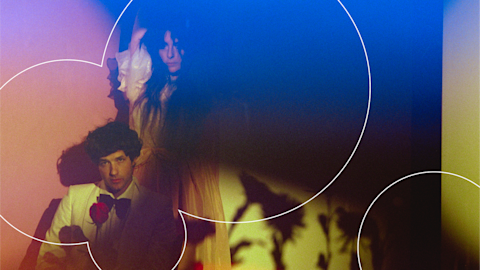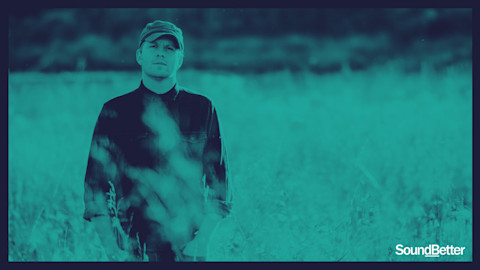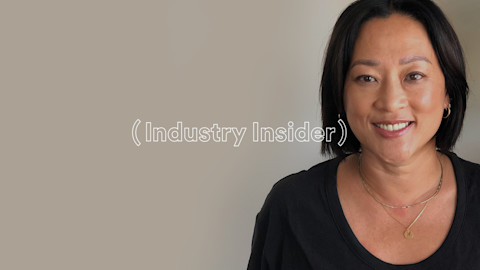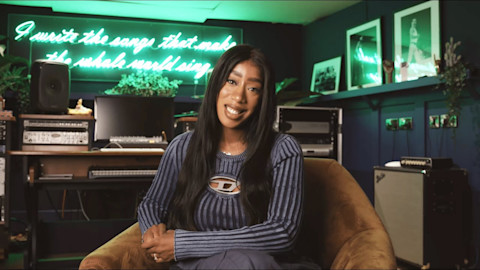Mainstream music is all but synonymous with film music in India. Of the 2,000-odd feature films the country produces each year, a significant chunk are musicals, and composers and playback singers are the country’s biggest pop stars. The cultural significance of India’s expansive, multilingual film industry is tough to overstate; musicians need a presence there if they want to succeed. Bollywood, among other regional film industries (India produces films in 20 languages or so), lets them make a living and find an audience, but to have more latitude with their own creative expression—minus the input of the directors, composers, and crewmembers who all have a stake in any given movie—artists usually have to work hard to cultivate a secondary independent presence.
Then there's DIVINE. Born Vivian Fernandes, he's a hip-hop star whose ascent didn't follow any of the usual rules. DIVINE’s popularity began to bubble after the 2013 release of a low-budget ode to his home city, "Yeh Mera Bombay." But, he says, “I really knew something was changing after ‘Mere Gali Mein’,” his 2015 breakthrough track.
Inspired equally by American hip-hop and the city and people of Mumbai, DIVINE’s music isn't just catchy—it's relatable and authentic. His popularity has skyrocketed thanks to a slew of collaborations, live performances, and singles. In 2015, after writer and director Zoya Akhtar saw him perform, they collaborated on the blockbuster film Gully Boy, which Akhtar based loosely on DIVINE and his crew, Gully Gang. That's been his only Bollywood foray, and successful as it was, DIVINE didn't feel truly validated until he became the first Indian to sign to Nas’ Mass Appeal label.
Defining success on his own terms
For DIVINE, fulfillment is about achieving widespread recognition without compromising his artistic vision, and his story of getting there without spending much time in the world of Bollywood is unusual. Other artists like singer, producer, and composer Sid Sriram and multilingual playback singer Jonita Gandhi have less dramatic but equally inspiring stories of accomplishment and satisfaction found by oscillating between Indian film music and independent work.
![Sid Sriram]()
Sid Sriram
Music is built into Sriram’s DNA. He learned to sing from his mom—a Carnatic music teacher in the San Francisco Bay Area, where he grew up. Sriram went on to graduate from Boston's Berklee College of Music with a degree in music production, and his big break in the film industry came after a collaboration with composing legend A.R. Rahman on the uniquely bluesy track "Adiye" from Mani Ratnam’s 2013 film Kadal. Sriram moved to India and found his fans through the film industry, but always wanted to take charge of his own sound. In 2019 he was at the helm on two big projects: He released his first independent album, Entropy, and played composer on upcoming Tamil film Vaanam Kottattum, scheduled for release in January 2020.
For Gandhi, having a career in music was a more deliberate decision. Born in India and raised in Canada, she was influenced by Bollywood’s great playback singers (Lata Mangeshkar, Asha Bhosle) and her father (a musician by hobby), and started taking singing seriously in her early 20s. The turning point came when she won a competition in 2011 that gave her the opportunity to sing with famed Indian vocalist Sonu Nigam for a Michael Jackson tribute concert. Gandhi took some time away from school to see where it could go, and she’s been working in India ever since, juggling playback singing and independent, collaborative covers with The Jonita Gandhi Band.
![Jonita Gandhi]()
Jonita Gandhi
Explore every idea
DIVINE doesn’t shy away from mixing up his hip-hop with sounds from other genres. His popularity shot up when he collaborated with electronic juggernaut Nucleya for the frenetic single "Jungle Raja," and the team he worked with for Gully Boy features a host of instrumentalists from pop, metal, and electronic backgrounds. DIVINE also likes to collaborate locally where he can. “If I’m in Punjab, I get a friend who can rap in Punjabi," he says. "It changes depending on where I am, but I like to give the people what they want. It connects me with my fans.”
DIVINE collaborated with Sriram on undulating R&B closer ‘Too Hype’ on 2019's Kohinoor. They had admired each other’s work from afar for two years, and when DIVINE asked Sriram to produce a track, Sriram was more than happy to oblige.
“We’re kindred spirits in that we take our work very seriously. I try to be as present as possible in all the different forms I’m involved in,” Sriram says, adding that he welcomes a challenge and enjoys the creative freedom of collaborating with independent musicians outside the film industry. “Exploration is the most important thing for me to do,” he says, “so every day I’m pushing my personal boundaries and finding something more.”
“You have to expand your genre horizons,” Gandhi says. She has the ability to sing effortlessly in 10 languages, and she pushes herself as an independent artist with The Jonita Gandhi Band, despite the heavy workload of the film industry. “Getting in the door is just the first step. The real work starts after that—figuring out how you’re going to stay relevant continue growing,” she says.
Embrace the internet
The digital music world is democratic: Artists no longer need access to labels or—in India’s case—the film industry to find success. The internet is also an invaluable networking tool, making it easier to find like-minded musicians, even ones on the other side of the world, and collaborate remotely. DIVINE discovered virtually all of his collaborators online—his longtime producer Sez, Nucleya, even the members of his live act, Gully Gang. Gandhi got in touch with her first collaborator, Akash Gandhi (no relation) through his YouTube channel, and their rendition of "Pani Da Rang" from the film Vicky Donor is how her fanbase began to blossom.
One of streaming music's biggest benefits is the way it simplifies exploration and new music discovery; many of Sriram and Gandhi’s fans find their way to their independent work by way of their film music. “It just makes it so much more possible for people to chance upon my music," says Sriram about sharing his music online and finding his way onto playlists. “I want people to accidentally find the music and fall in love with it.”
Because record labels outside the film industry in India are relatively scarce, a lot of artists look for opportunities to share and collaborate via digital platforms. Gandhi notes that another benefit of finding a digital audience is that metrics help her understand who is listening. “The goal is to learn from that information,'' she says, adding that it helps her understand how her fans see her music, and what they like.
Be authentic
“Representing yourself; that’s what you should really strive for,” says Gandhi. She’s grateful for the fans she found in the film world but notes, "It isn’t the same as the satisfaction that comes from making your own music.” She's committed to creating work that reflects her love of pop, which is why she started her own band.
Sriram’s advice is to take on the challenges of juggling different roles without losing sight of yourself, even when the pressure increases as the stakes get higher. “If you base your emotions on how your music is received and whether you’re popular, you’re screwed,” he says. He also notes that there's always more to learn and experience. Entropy came at a time when he was at a crossroads, after personal disappointment and the failure of another project that didn’t see the light of day. “Entropy was born out of a deep need for a cathartic musical experience. It allowed me to heal and address different emotions,” he says. “What helped me was holding on to my roots.''
DIVINE was introduced to rap by a kid in school who wore a Get Rich or Die Tryin’ tee. He burned the young Fernandes his first CD, a collection of rap from the East Coast of the US. DIVINE’s first attempts at rap were in English, because that’s what he saw his idols do. But his music didn’t resonate until he switched over to Hindi, the language he spoke at home and with his friends.
“People liked me then because I was honest," he says. "They liked the music because I was myself—I was relatable.” He tried to stay honest with his work with Gully Boy too, and wants to remain selective with Bollywood. “If Bollywood comes to me, I’ll handle it with care," DIVINE says. "Meaning if it’s a good song, if I’ve written it and it makes sense, I’ll do it. Otherwise we’ll keep it independent.”
When DIVINE was young, his idols didn’t look like him or speak his language. But by staying true to his reality, he's managed to set an example that future musicians can look up to. Free, creative expression goes hand-in-hand with authenticity. So what’s the key to finding that balance between commercial success and artistic expression? “There’s no formula,” DIVINE says. “The most important thing is to believe in what you do, and keep it natural.”
—Diya Gupta








